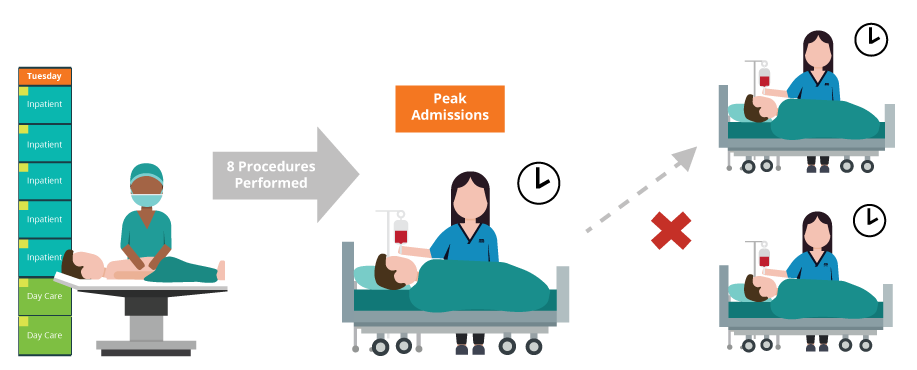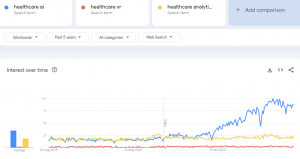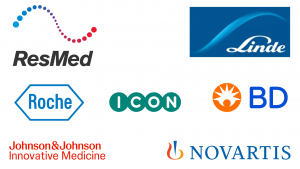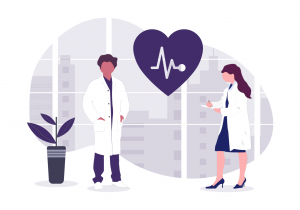Here we look at how to leverage health and patient care scenarios for learning, making training more effective for NHS or private healthcare organisations.

What is scenario based learning?
The term scenario-based learning refers to the process of simulating possible real-life working scenarios in order to develop relevant, highly specific knowledge, and to practise reactive skills for those situations.
Numerous studies have shown that true to life learning experiences, such as simulations and scenarios, are the most effective for developing work-specific skills.
One of the most cited studies that demonstrate the principle is that of Lave & Wenger, 1991, which was titled ‘Situated Learning Theory’. They described the process of “legitimate peripheral participation”, where knowledge needs to be presented in authentic contexts — settings and situations that would normally involve that knowledge.
So, scenario based learning is a framework where the learning experience is hung around a realistic situation or story.
Craig Weiss, rated on numerous occasions as one of the world’s leading elearning experts, recently stated that scenario based learning (SBL) “is the most effective and successful way to achieve real learning results”.
In an environment like healthcare, which is time-pressured and where the highest levels of staff proficiency are absolutely essential, it makes sense to use the methods of training delivery that are proven to bring the best learning outcomes.
Healthcare Learning Scenarios
Healthcare professionals deal with medical cases that require them to combine subject matter knowledge with critical thinking to make fast, but sound decisions. SBL can help the learner to be as accustomed as possible to dealing with the many factors at play, minimising the amount of ‘new’ variables that they need to process.
Running through patient care scenarios is the best possible practice ground for practitioners – both new and experienced. It develops their understanding of the interactions between patient attributes and condition, medications, the latest guidelines and other factors, in order to apply their knowledge to the best of their abilities.
Why eLearning is Best for SBL in Healthcare
This environment comes with a unique set of challenges – especially when it comes continuing professional development (CPD) for healthcare and medical staff.
- Round the clock shifts – as healthcare is not a 9 to 5 occupation, staff often work unusual hours and in varying shift patterns. This can make organising teams for traditional, classroom-based training more difficult.
- Budget restraints – always in the news, the NHS (and private healthcare providers) are under pressure to minimise costs with no loss of quality in patient care. Like all departments, training will feel the squeeze, so needs to search for every possible efficiency.
- Compliance – quite rightly, healthcare and medical legislation is strict and constantly under the spotlight. Therefore, healthcare HR and L&D teams in both NHS and private healthcare organisations need to not only deliver training, but ensure adherence to the latest best practice and legal guidelines.
- Constant change – as new medications, technologies, laws and guidelines are introduced regularly, healthcare learning and development teams need a way to ensure that training keeps pace.
eLearning is a highly effective way of meeting all these training challenges. Learning content and scenarios can be made available at any time and from any location with an Internet connection. Training can be accessed at times convenient to the learner, not the trainer.
eLearning saves money by reducing the time required of expert trainers and any costs associated with sending them to the learners or the learners to them.
Learner analytics can give insights into not just receipt of training, but how the individual and groups of learners interact with and comprehend the content – measured through assessments. This can help to ensure compliance and identify any weaknesses in the training content or learners that need extra support.
New training content can be rolled out as soon as it is created, without the need for managing the logistics of getting staff together for refresher courses.
With all these potential benefits, scenario based learning for healthcare, delivered via elearning, is ideal for health and medical training delivery.
Here at Day One, we’re specialists in creating system simulations and highly effective scenario based training, and are working on a range of exciting projects for public sector / NHS and private healthcare clients.
Contact us to discuss how we could help to make your training more efficient and effective.
Related sections of our site:
Details of our healthcare elearning solutions.
An overview of our Patient Care eLearning Project with Scottish Government & NHS Scotland.
Working with King’s College Hospital – interactive elearning for NHS staff and EU partners dealing with sensitive subjects and patient care scenarios related to people trafficking.


















